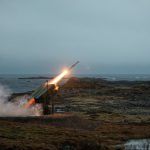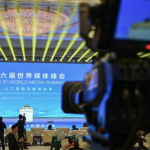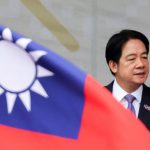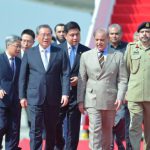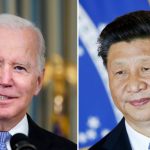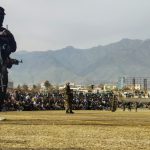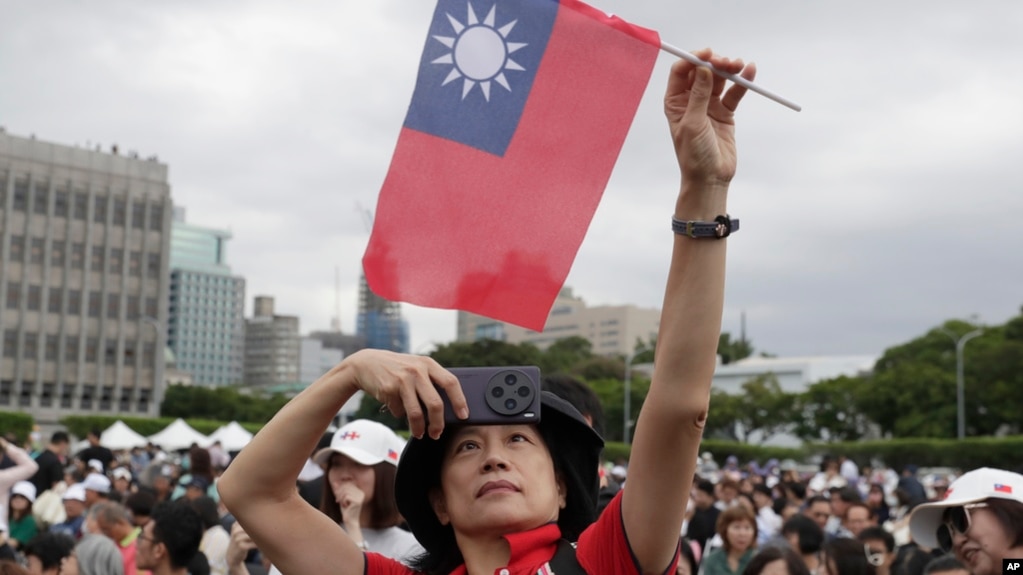
A person poses with Taiwan's national flag for a photo during National Day celebrations in front of the Presidential Building in Taipei, Taiwan, Oct. 10, 2024.
Washington —
Resisting pressure from Beijing to publicly reject independence for Taiwan, the Biden administration underscores there is no change in its “one China” policy which takes no stand on the issue.
“We do not support Taiwan independence. We expect cross-Strait differences to be resolved by peaceful means, free from coercion,” a senior administration official told VOA Tuesday, underscoring long-standing U.S. policy on the thorny issue. “We oppose unilateral changes to the status quo by either side.”
The confirmation followed reports that during their last in-person meeting, Chinese President Xi Jinping asked U.S. President Joe Biden to change the language the administration uses when discussing its position on Taiwan independence.
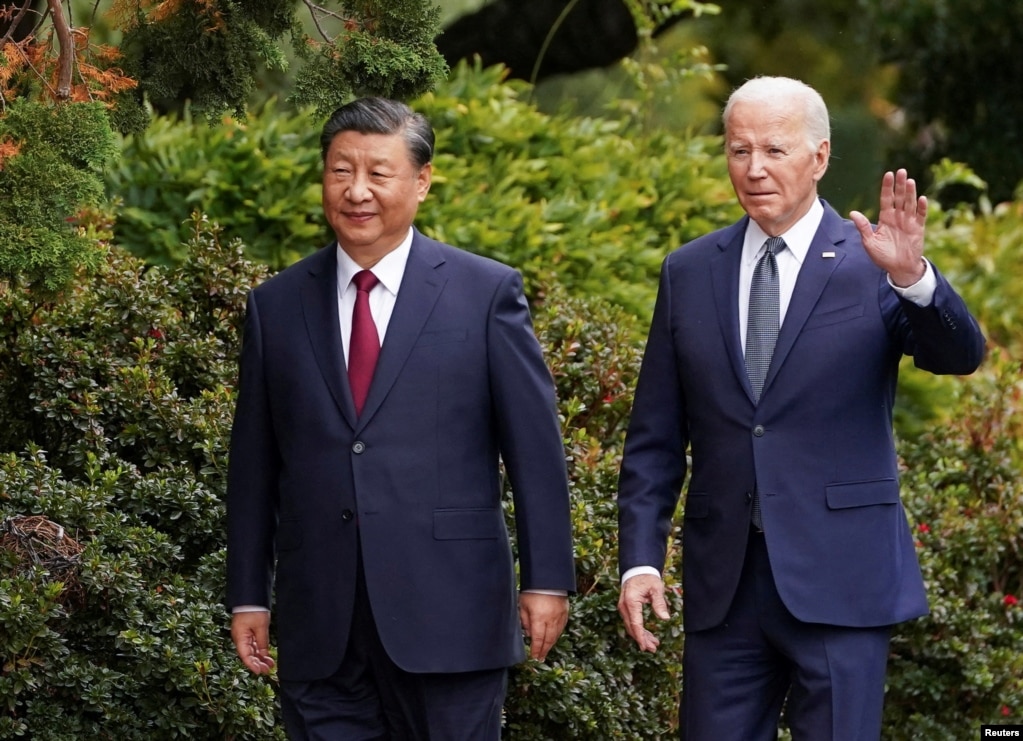
FILE – U.S. President Joe Biden meets with Chinese President Xi Jinping on the sidelines of APEC summit, in Woodside, California, Nov. 15, 2023.
On the sidelines of the APEC meeting near San Francisco last November, Xi reportedly told Biden he wants the U.S. to use language stating it “opposes” instead of “does not support” independence for Taiwan, the current phrase used in U.S. official statements.
The administration has been “consistent on our long-standing one China policy,” the official said. Under the policy, the U.S. acknowledges but does not endorse Beijing’s view that it has sovereignty over Taiwan. It considers Taiwan\’s status as unsettled.
The Chinese Embassy in Washington did not respond to VOA’s request for comment.
Beijing’s push for stronger language is not new. Ahead of the Biden-Xi meeting last year, VOA reported that Foreign Minister Wang Yi also made the request in his meetings with U.S. counterparts.
The Chinese have been asking for this shift, and in some instances falsely asserting that the U.S. position is to oppose Taiwanese independence, said Zack Cooper, senior fellow at the American Enterprise Institute.
“I find it unlikely that the United States will take this advice without some substantial concession from China on its own position about Taiwan,” Cooper told VOA. “I doubt this will get any traction in Washington unless it is part of a longer-term conversation about de-escalating tensions across the Taiwan Strait.”

This handout from China's People's Liberation Army (PLA) Eastern Theatre Command released on Oct. 14, 2024 shows a map of locations of the "Joint Sword-2024B" military drills being conducted by China around Taiwan.
The administration announced it approved the package last week, which includes its first delivery of three National Advanced Surface-to-Air Missile Systems, advanced weapons that have been battle-tested in Ukraine.
Despite the lack of formal diplomatic ties, the U.S. is Taiwan’s strongest unofficial ally and Washington is legally bound by the Taiwan Relations Act to provide Taipei with the means to defend itself.
China “strongly condemns” the sale. “We will take resolute countermeasures and take all measures necessary to firmly defend national sovereignty, security and territorial integrity,” said a Chinese Foreign Ministry spokesperson.
VOA\’s Nike Ching contributed to this story.
By:VOA
